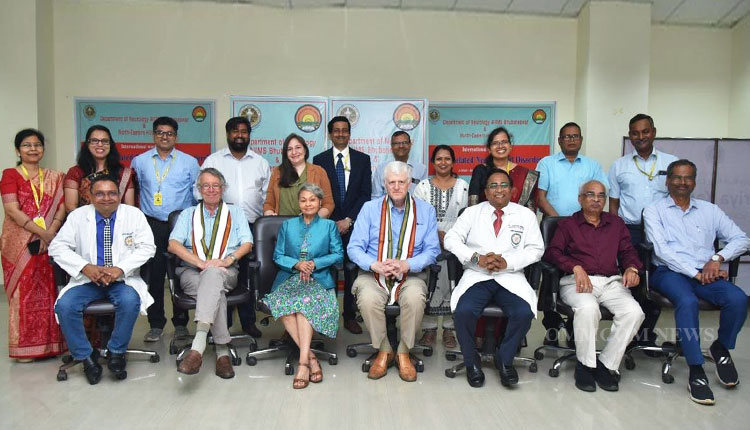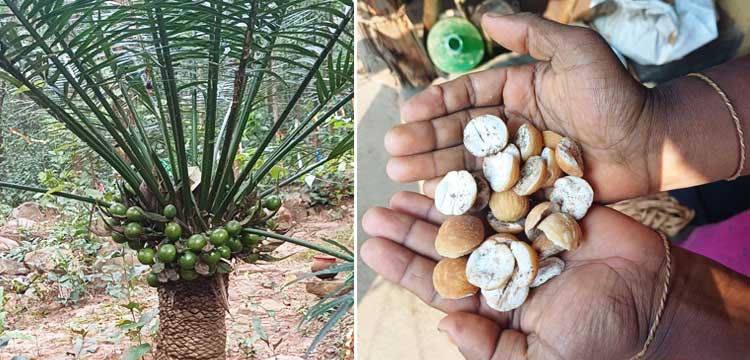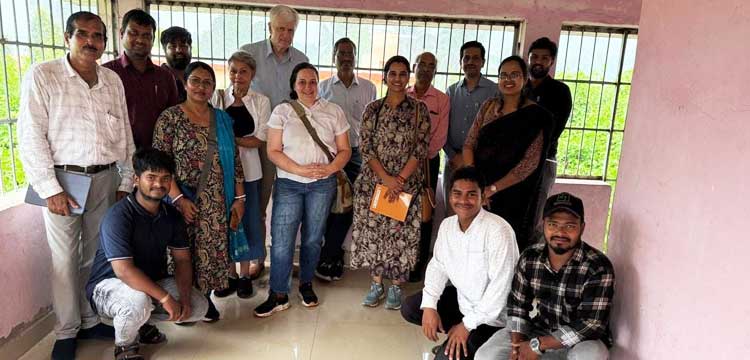Bhubaneswar: In a significant and concerning revelation, scientists have identified BMAA, a potential neurotoxin, in several species of the ancient Cycad plant found in the forests of Odisha. This discovery has raised alarms as certain segments of the local population continue ancestral traditions of consuming cycad plant products, such as pitha, as part of their diet and rituals.
Whether these consumption practices are directly linked to an increased incidence of neurological diseases remains a critical question driving new, pioneering research initiated at AIIMS Bhubaneswar.
To address this burning query, a distinguished group of national and international scientists and medical experts recently convened in an international workshop titled “Cycad-Related Neurological Disorders: A Multi-Dimensional Approach to Its Remediation”. The event was jointly organized by the Department of Neurology, AIIMS Bhubaneswar, and the North-Eastern Hill University (NEHU), Shillong.
The workshop highlighted the serious health risks associated with Cycads, an ancient plant species that coexisted with dinosaurs for over 300 million years. Often used today as ornamental flora, cycad species contain potent toxins, including Cycacin, BMAA (β-N-methylamino-L-alanine), and MAM (methylazoxymethanol). These toxins have been strongly associated with debilitating neurodegenerative diseases such as Parkinsonism, motor neuron disease, and dementia in other global regions, notably the Guam peninsula in the USA and the Kii peninsula in Japan, where the plant has been an indigenous part of traditional diets.
A highlight of the event was the presence of world-renowned neuroscientist Prof. Peter S. Spencer, a pioneer in cycad neurotoxicology, and Professor. Valerie S. Palmer, both from Oregon Health & Science University, Portland, Oregon, who shared their extensive experience from Guam and Kii peninsula studies.
They were accompanied by an esteemed international team, including Professor. Jacques Reis, former Professor of Neurology, University of Strasbourg, France; Dr Rajarshi Majumder and Dr Jessica Pasqua from the University of California, Los Angeles; and national experts including Professor Manjari Tripathi, Head, Neurology Department, AIIMS in New Delhi.
As a crucial component of the workshop, experts conducted field visits to the villages of Dhuannali in the Khordha district and Gangamunda, Suaginali of Kamakhyanagar in the Dhenkanal district. In these areas, local tribal populations remain largely dependent on the Cycas plant (known locally as Veru; Odia name Aruguna) as a traditional food source.
Experts engaged directly with villagers, patients, and local healthcare providers to understand the potential neurological and related health problems arising from the consumption of cycad seeds.
Prof (Dr.) Ashutosh Biswas, Executive Director, AIIMS Bhubaneswar, who was the Chief Guest of the workshop, congratulated the initiative for pioneering research into Indian cycad species toxicology.
The research effort is led by a collaborative team including Prof S. K. Barik, Dean School of Life Sciences, NEHU, and Prof Sanjeev Kumar Bhoi, HOD Neurology, AIIMS BBSR. The team includes prominent medical personnel such as Professor Dillip K. Parida, Radiation-oncologist and Medical Superintendent, AIIMS Bhubaneswar and Dr Shakti Kanta Dash from the Department of Science and Technology, Government of Odisha.
The workshop concluded with a commitment to a clear roadmap for advancing translational research, enhancing community awareness, and fostering interdisciplinary collaboration aimed at understanding and mitigating the significant health risks associated with cycad consumption in the region.



















